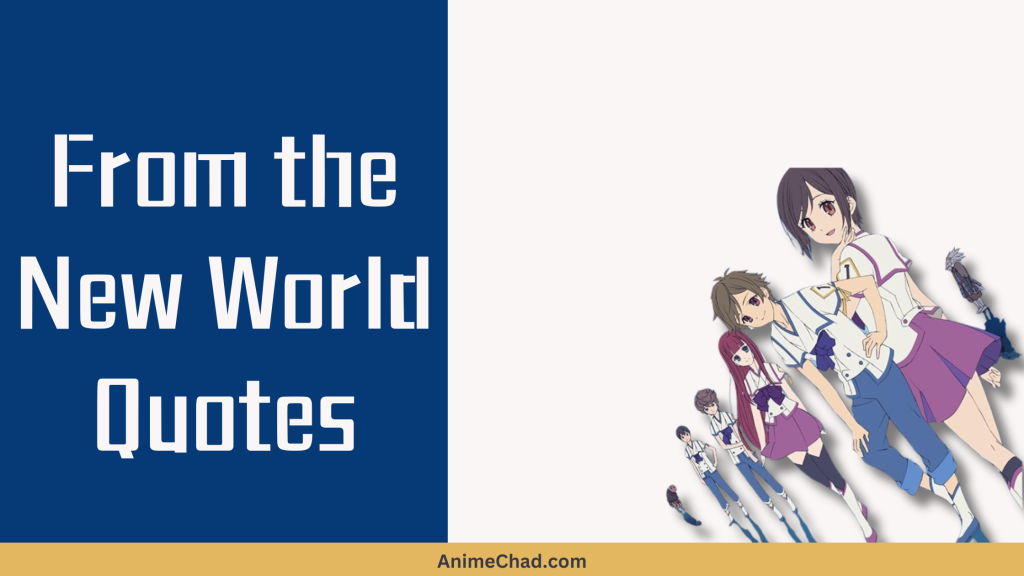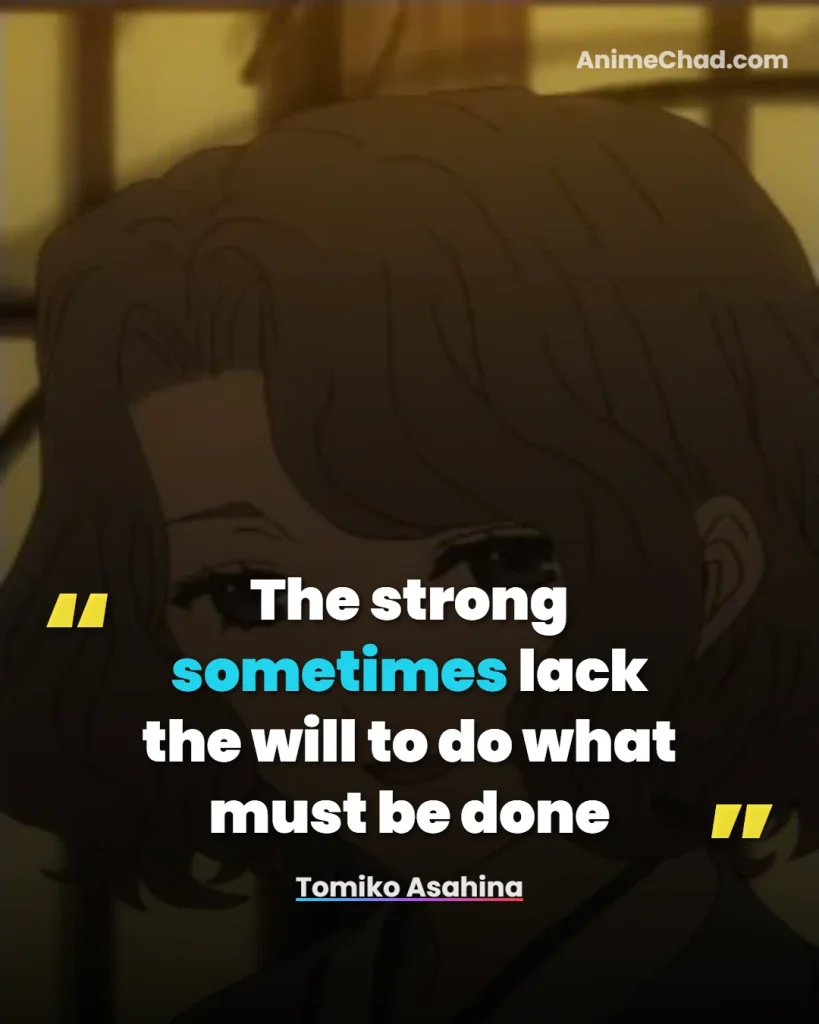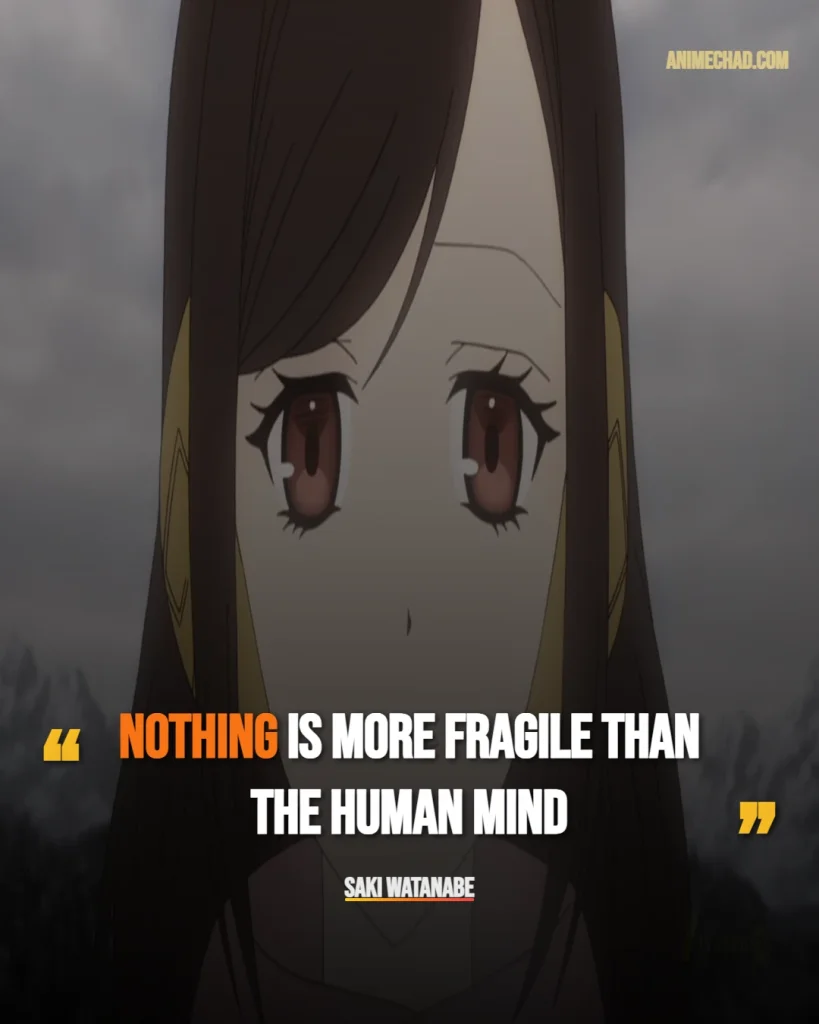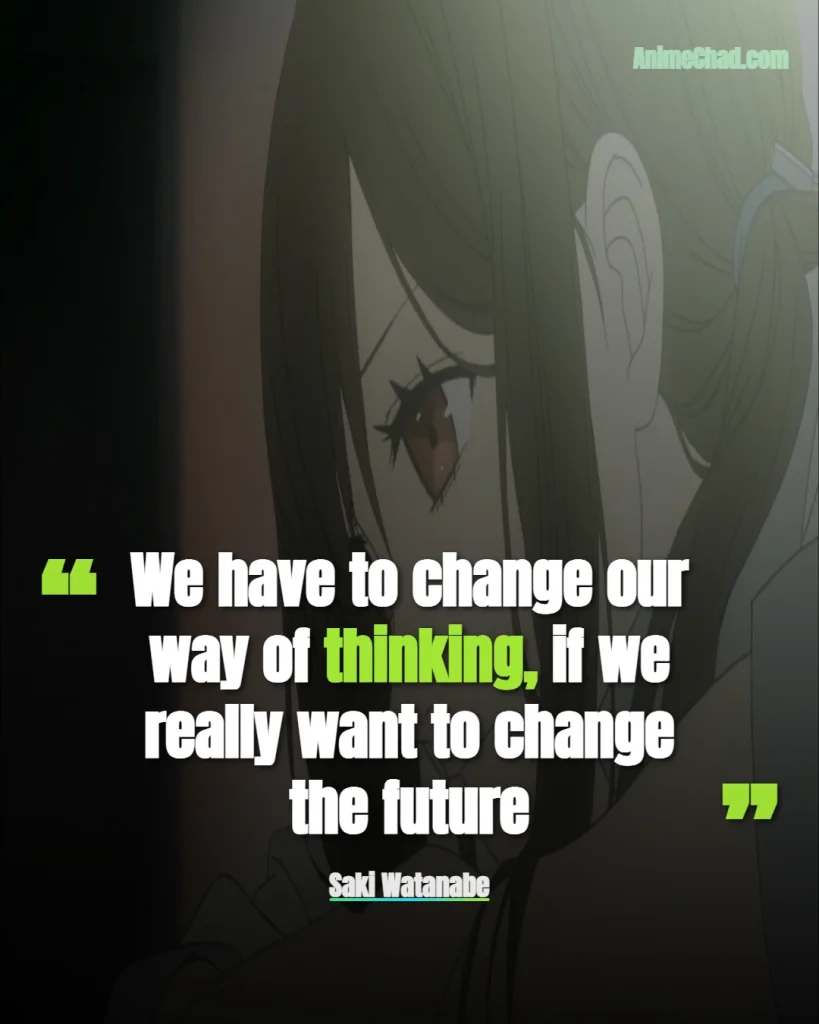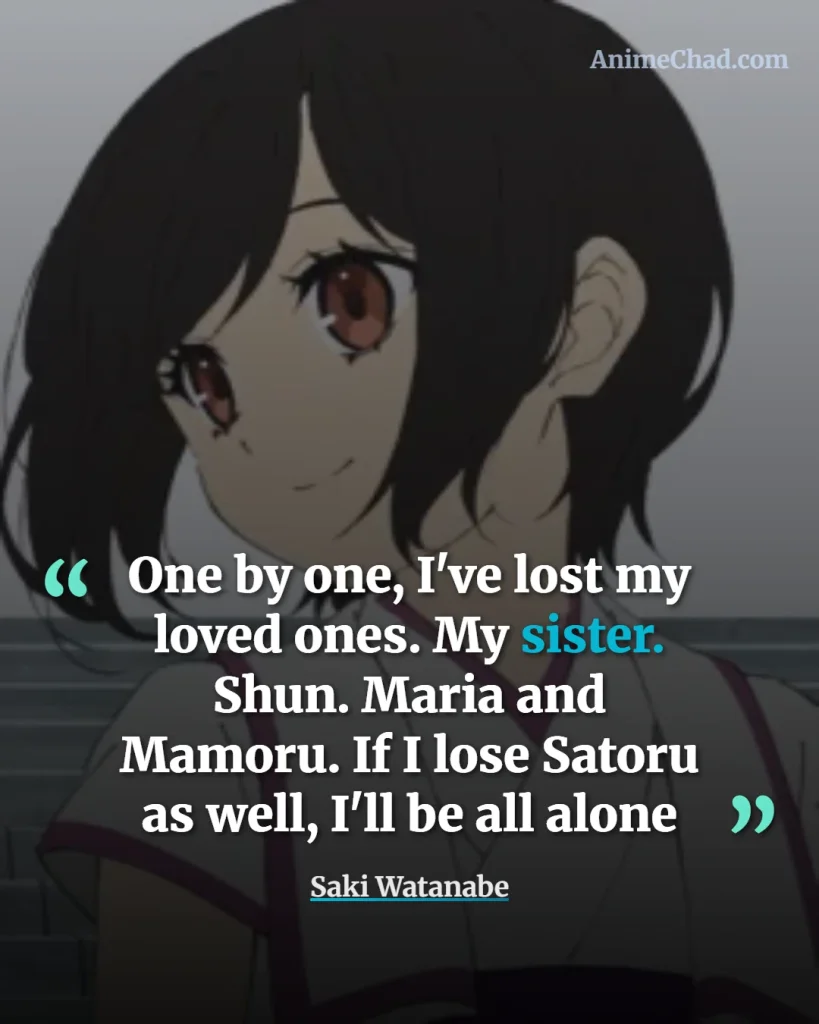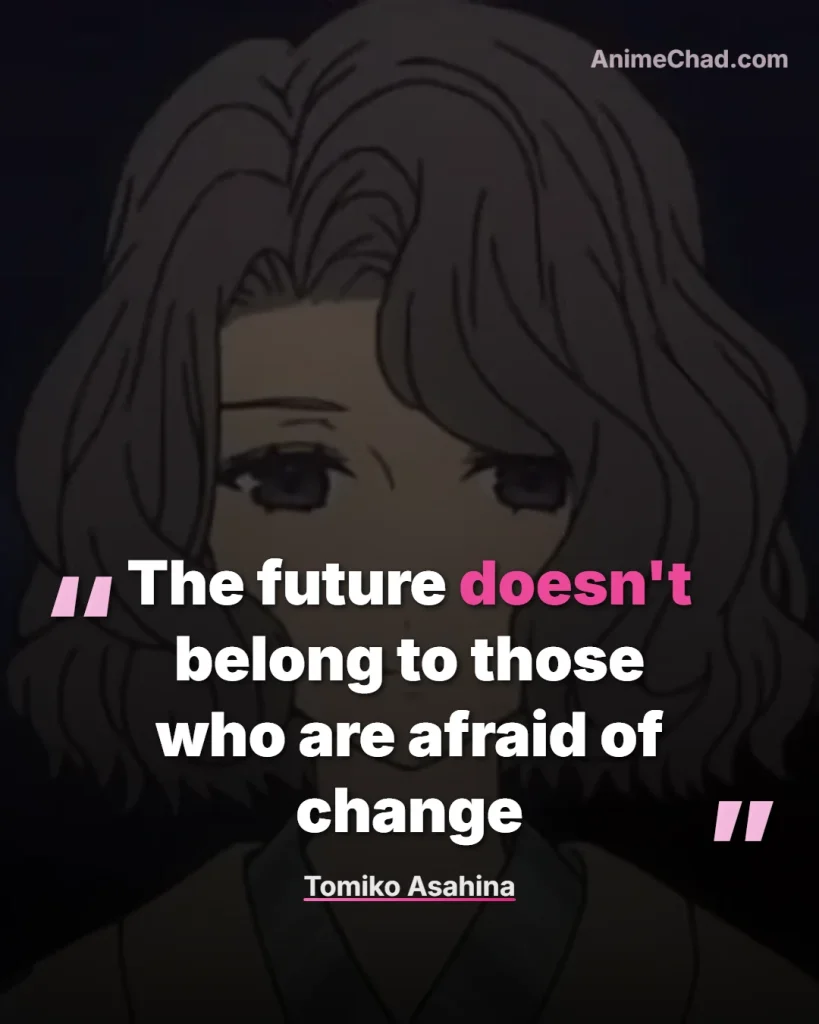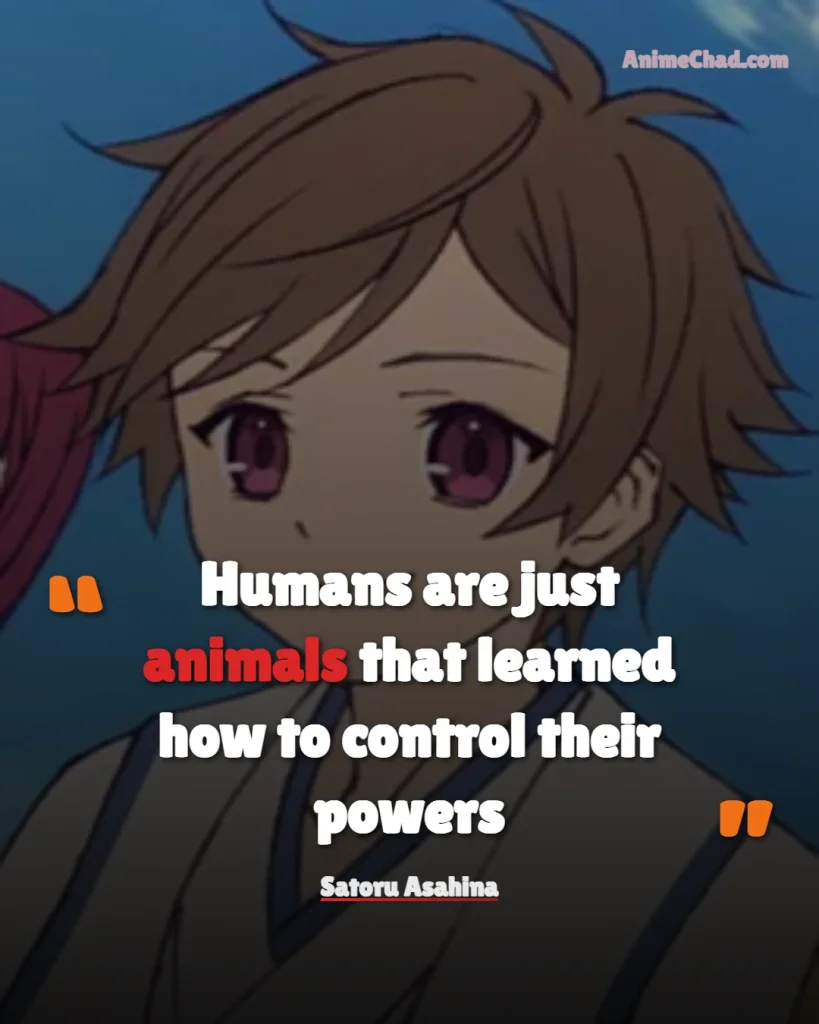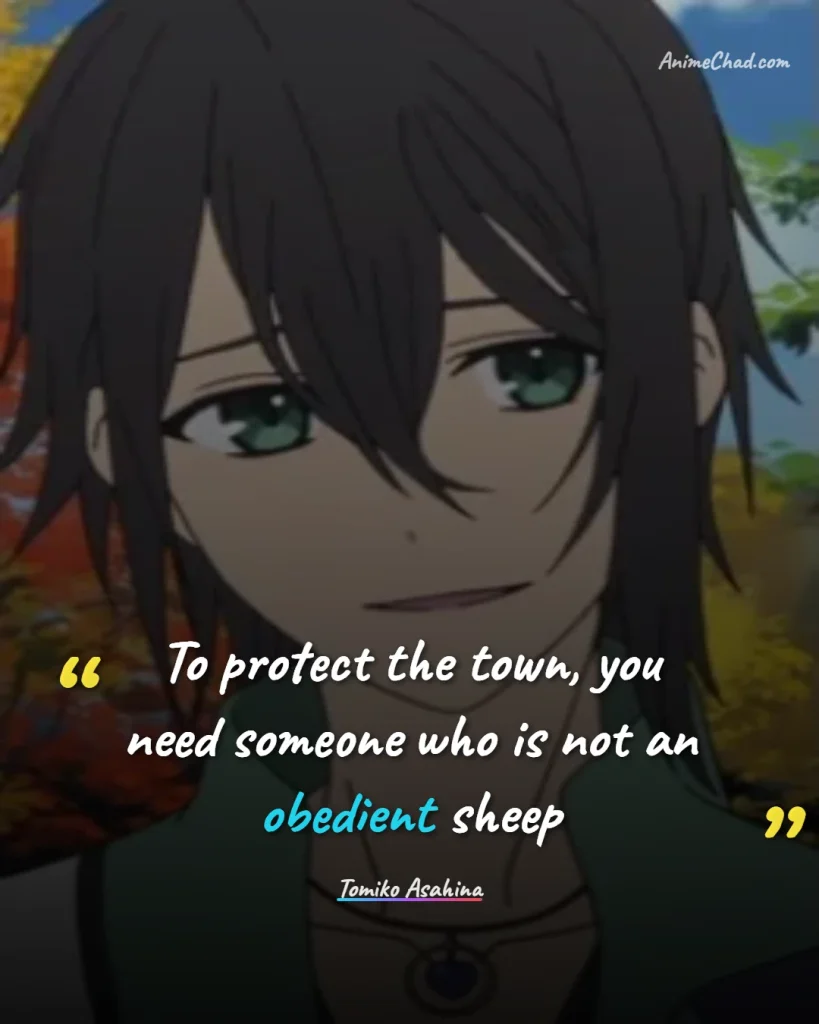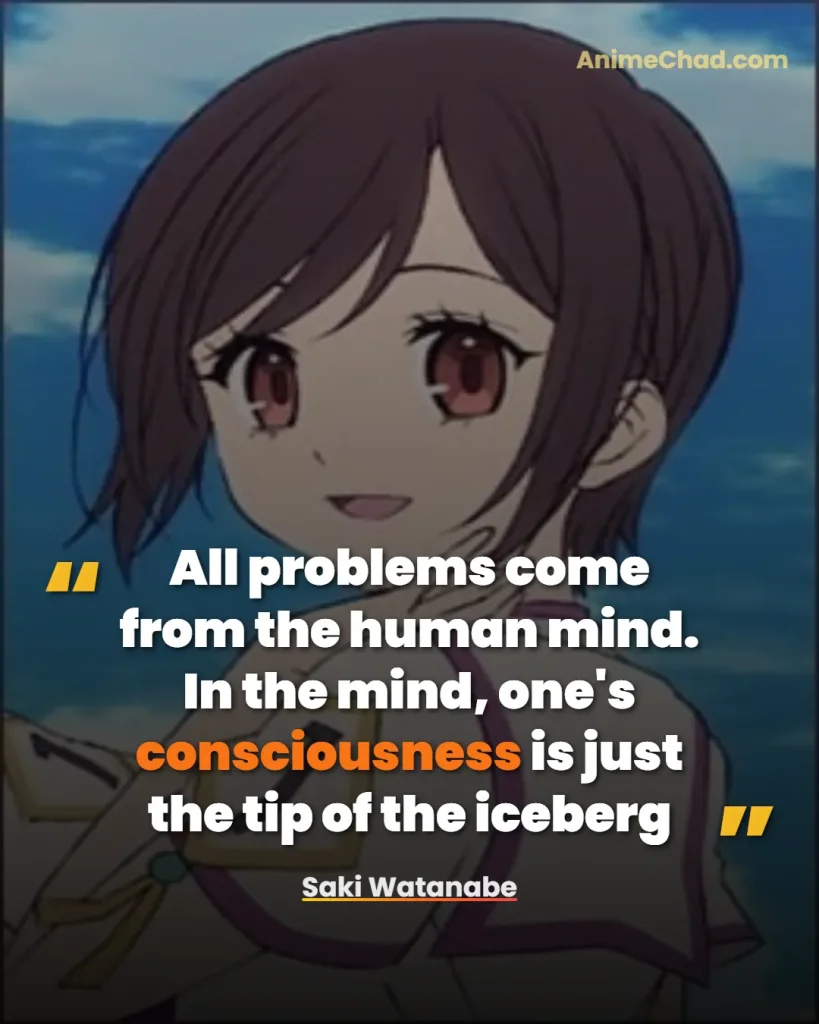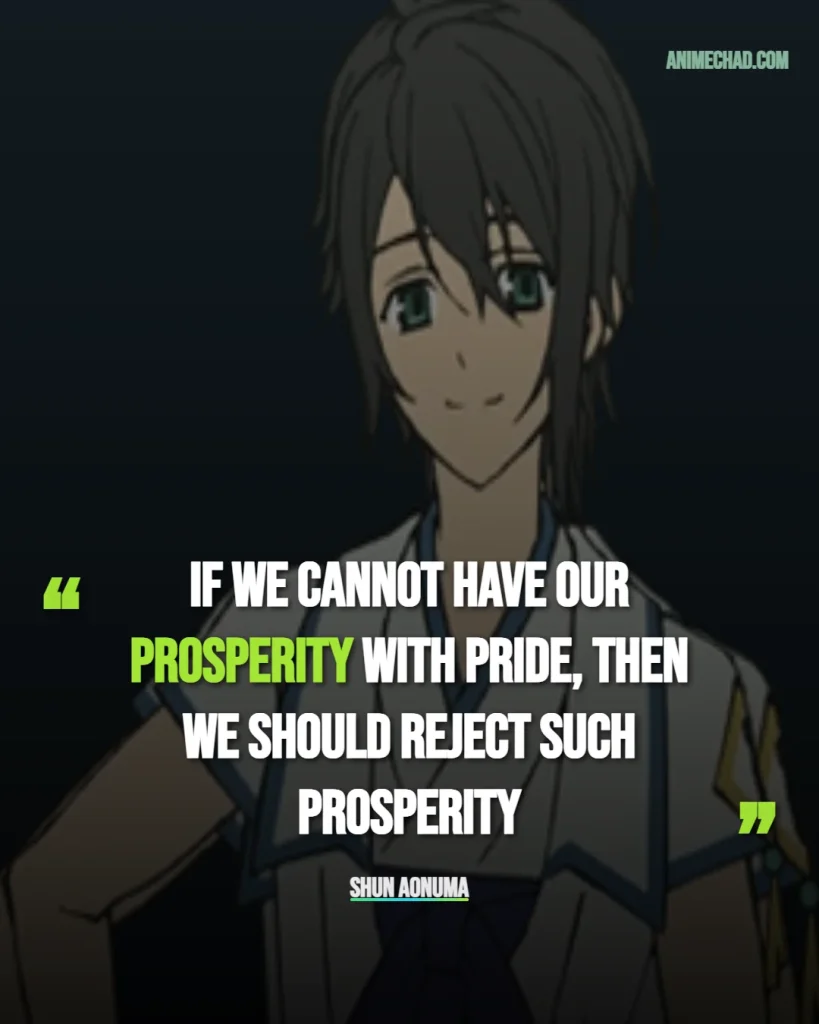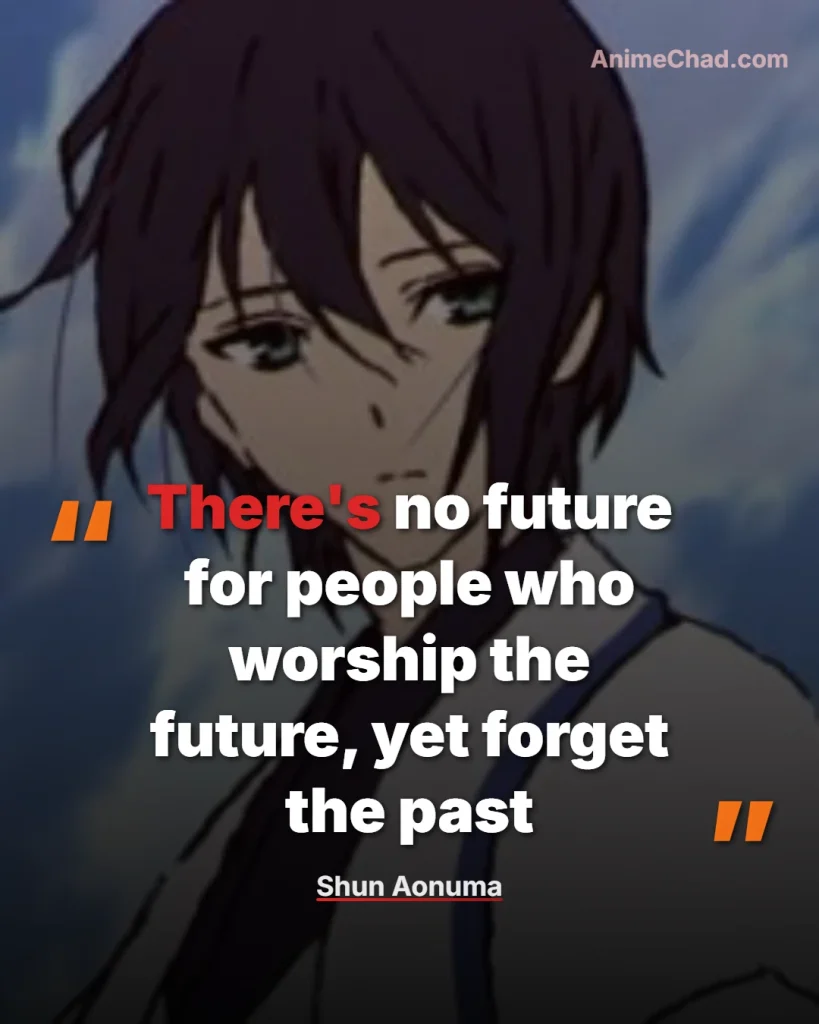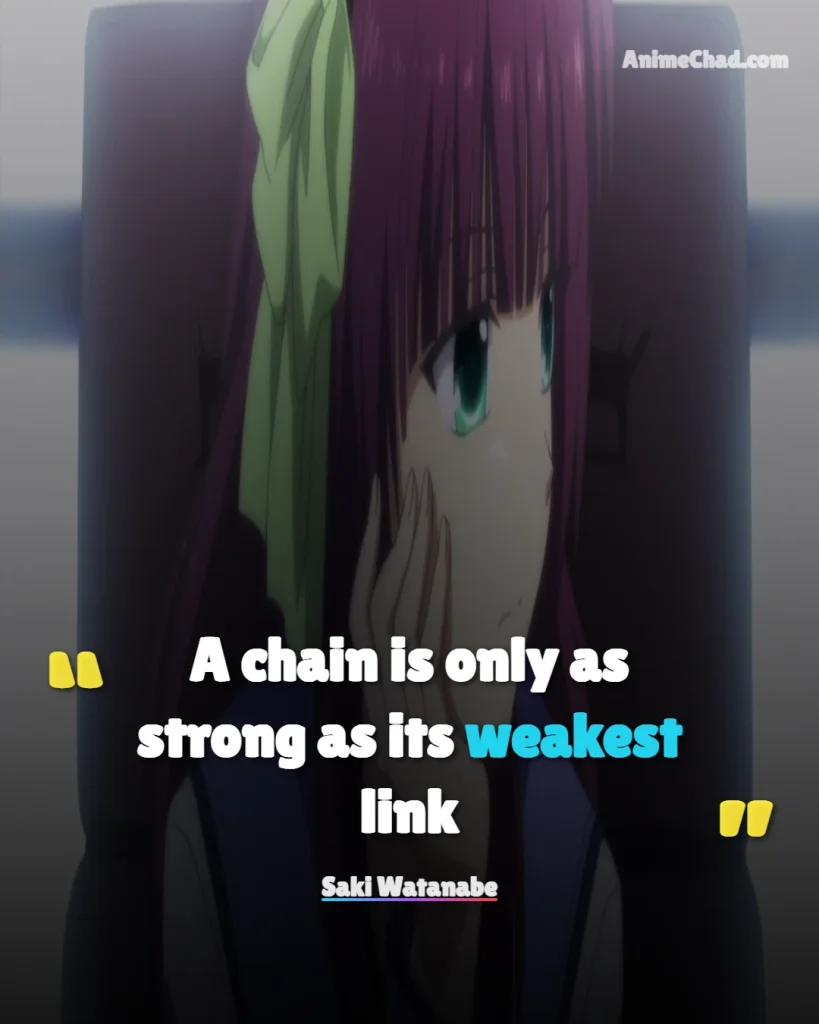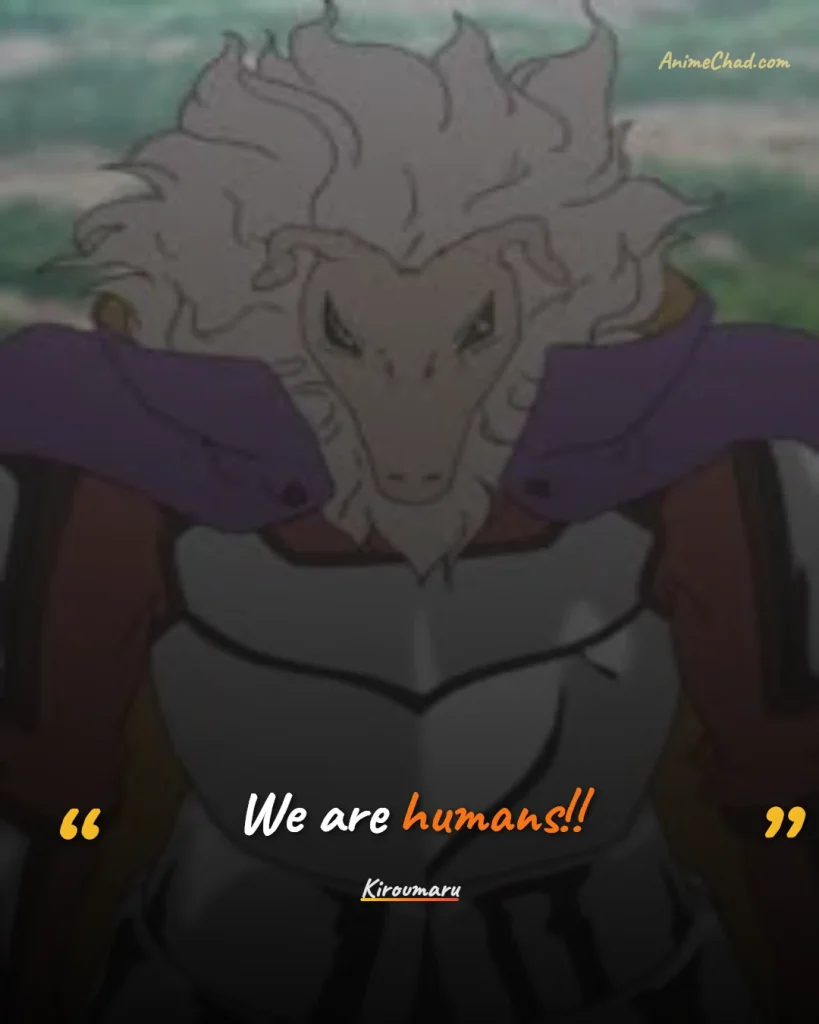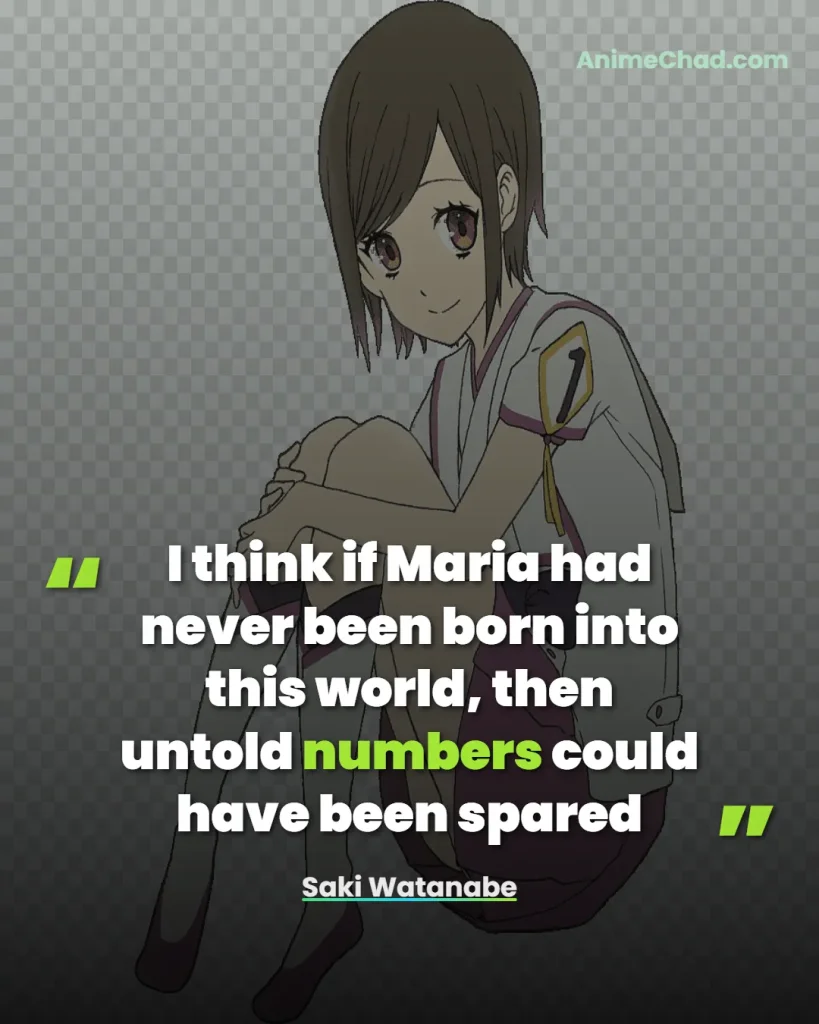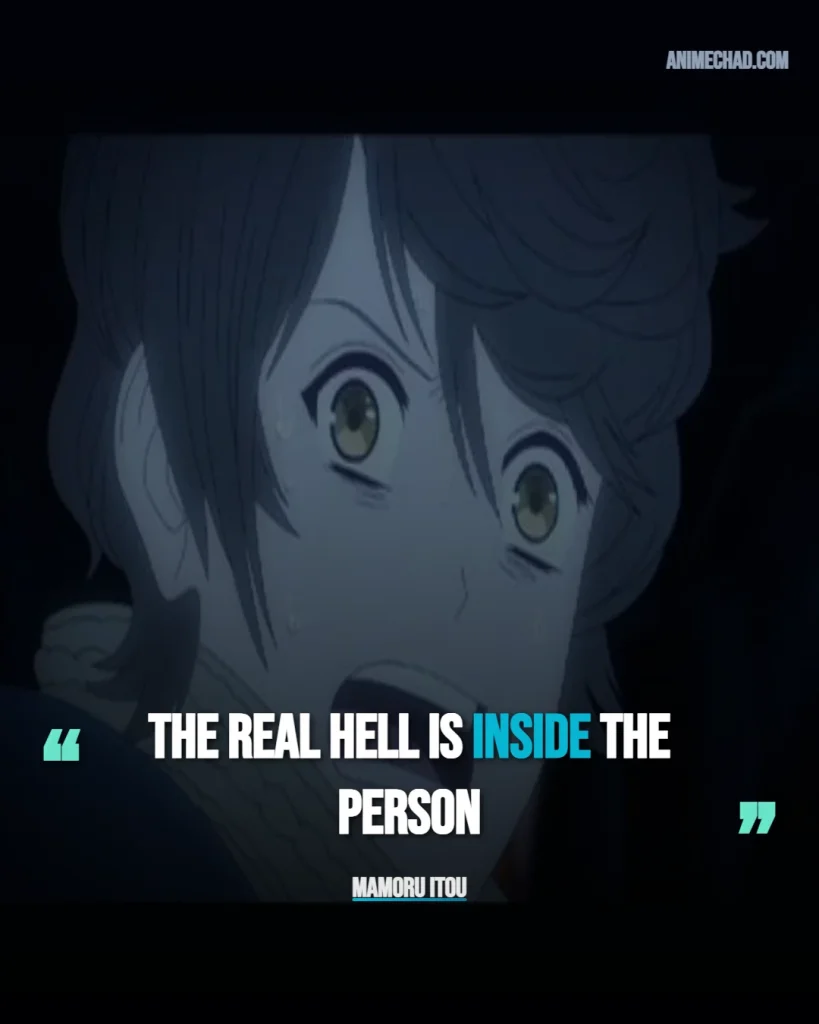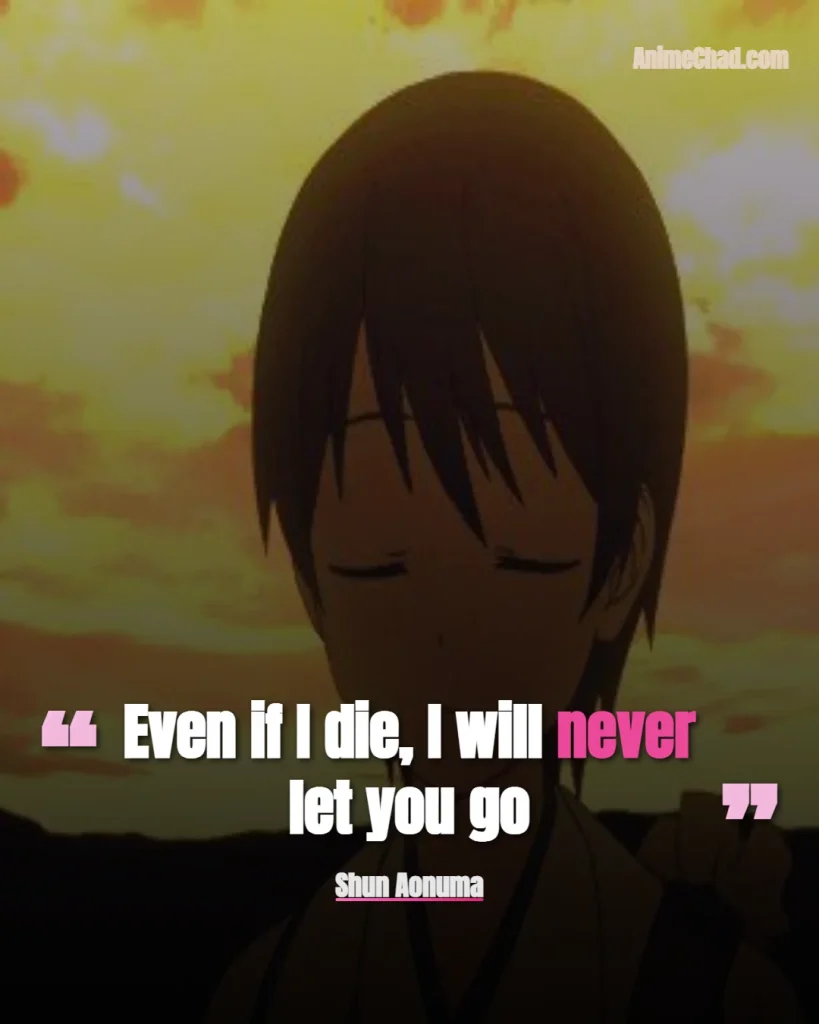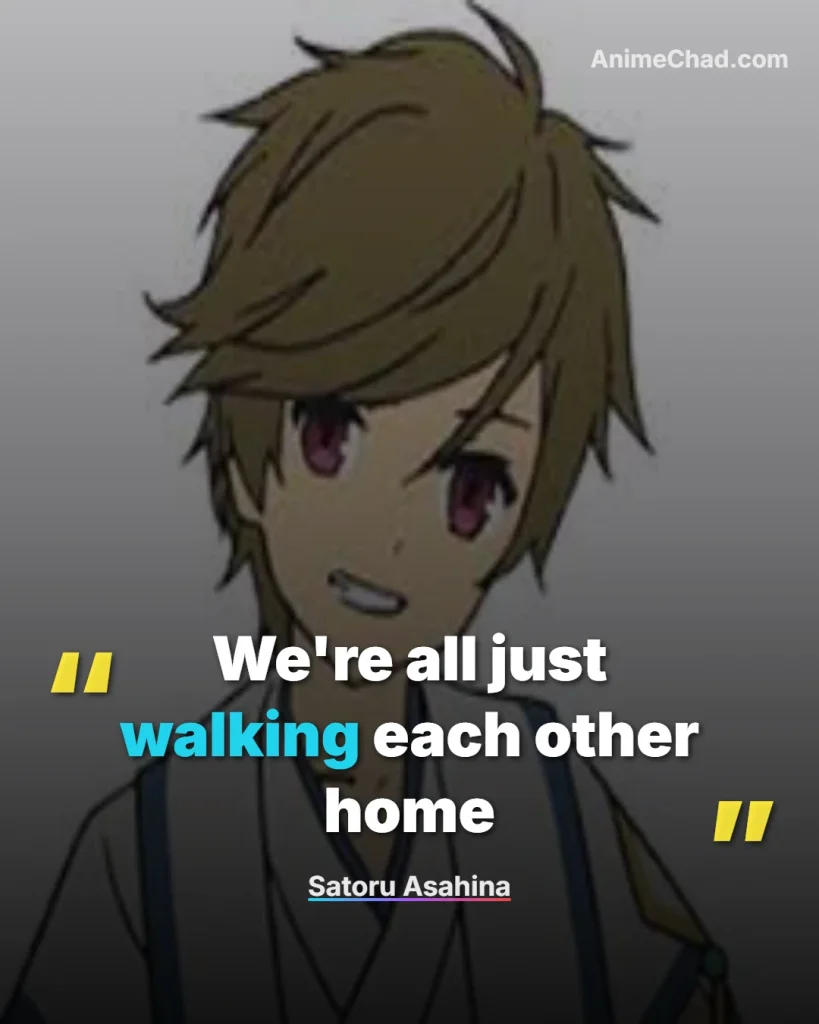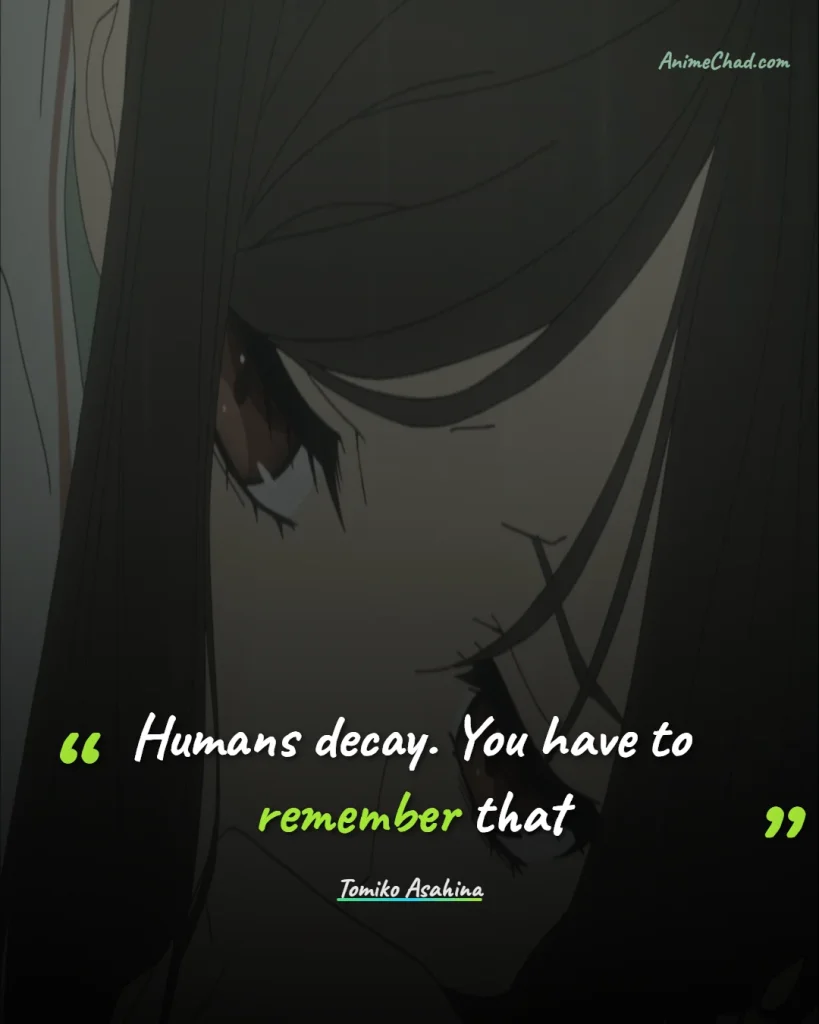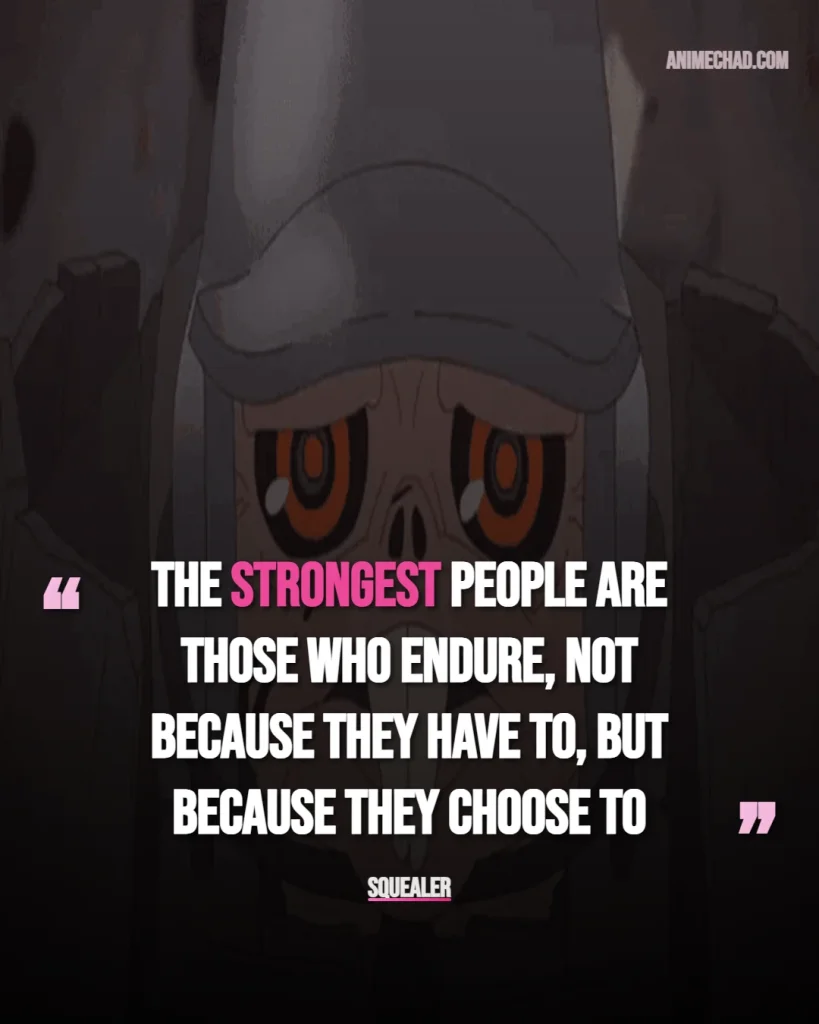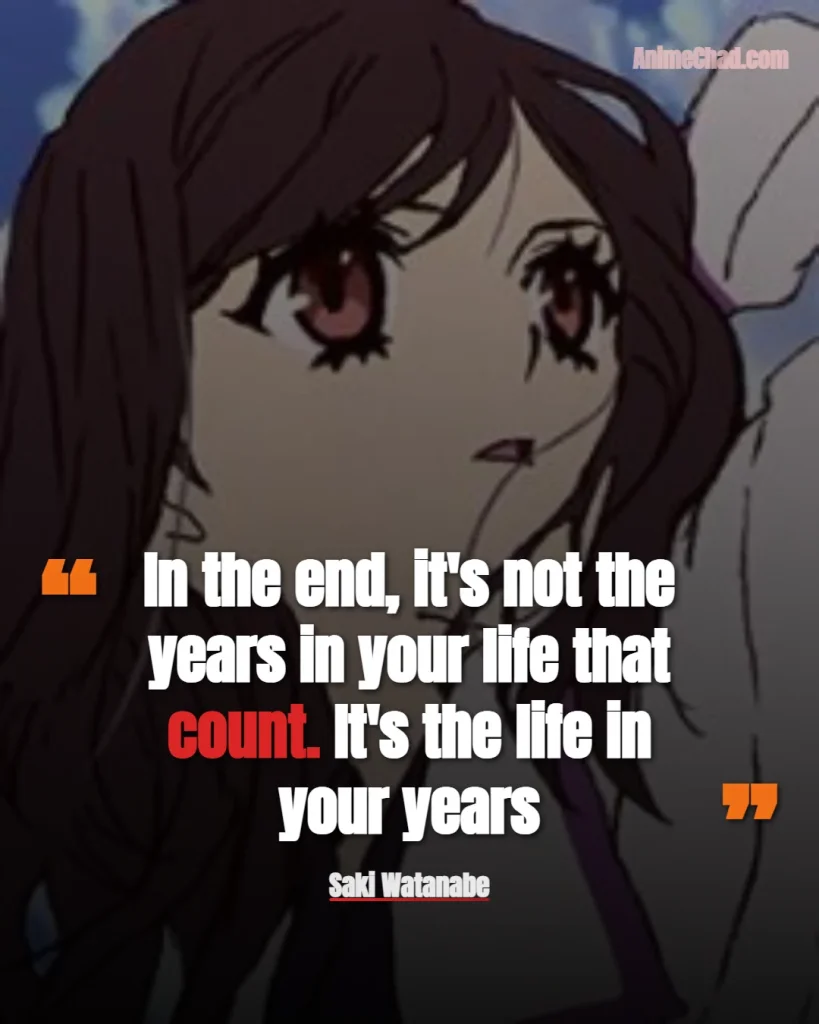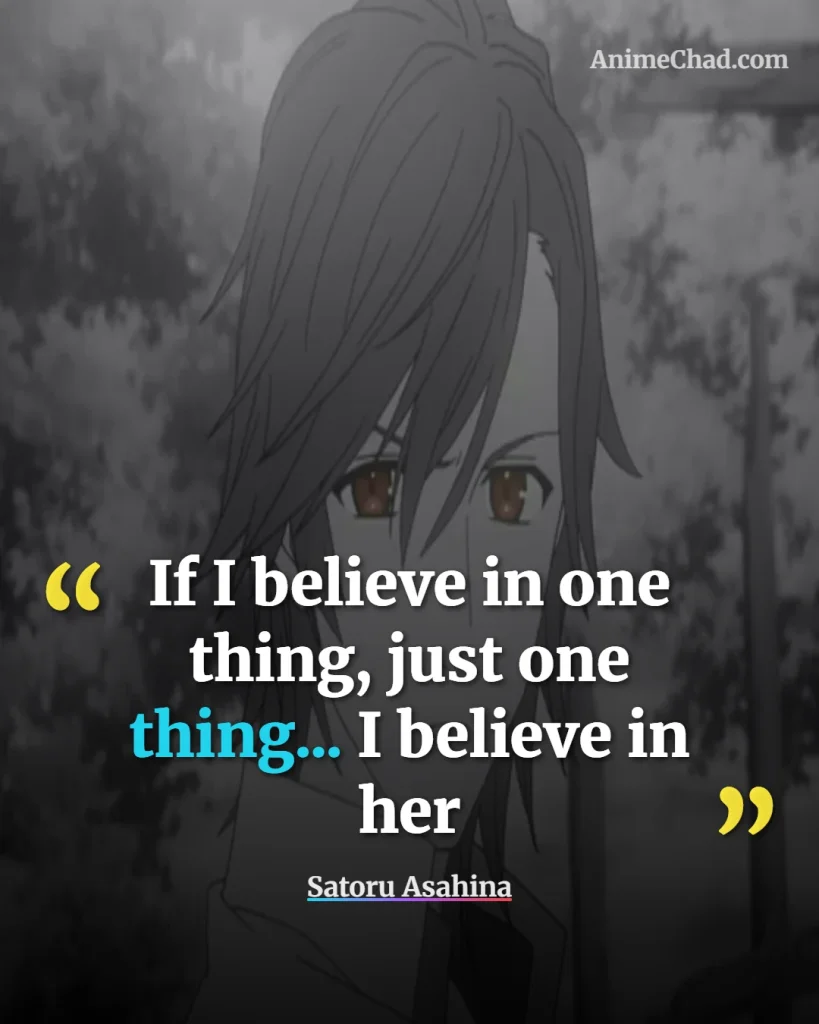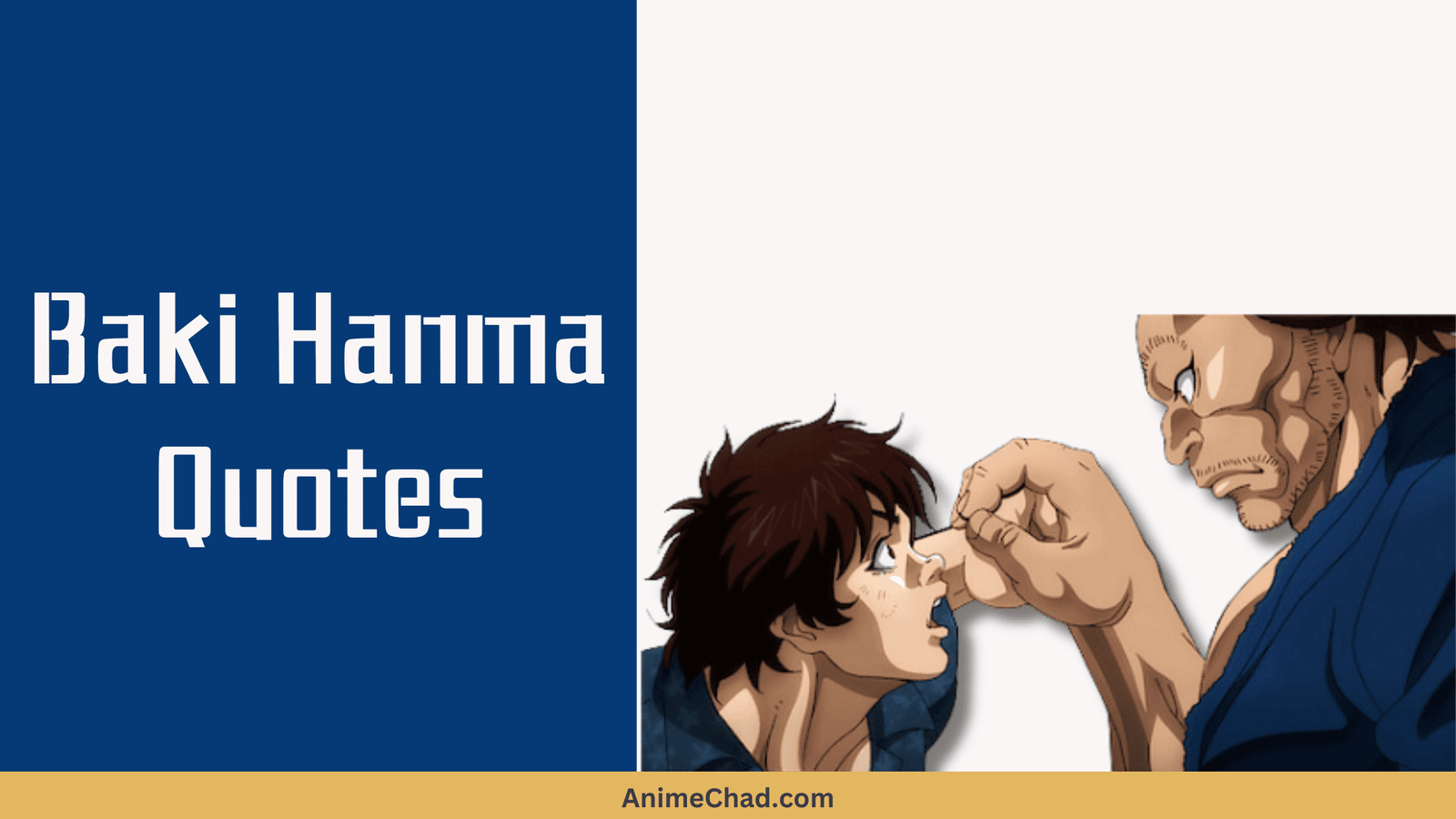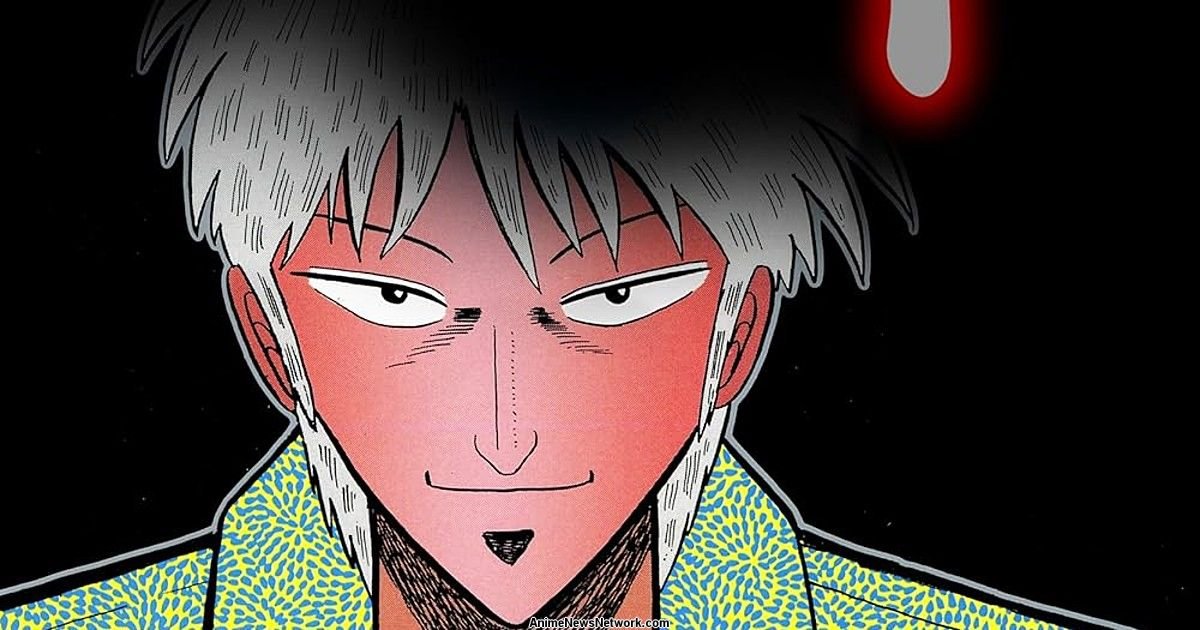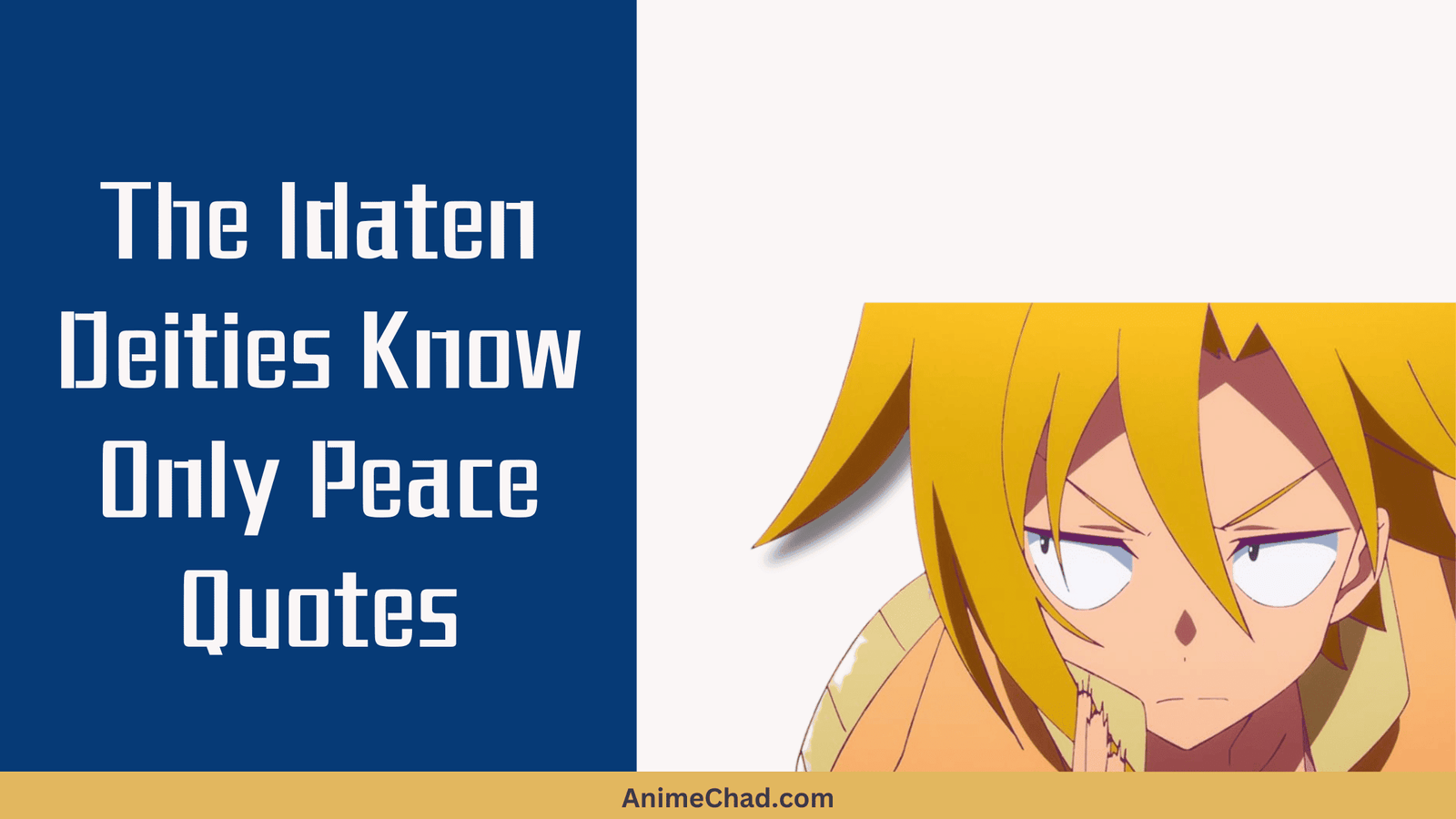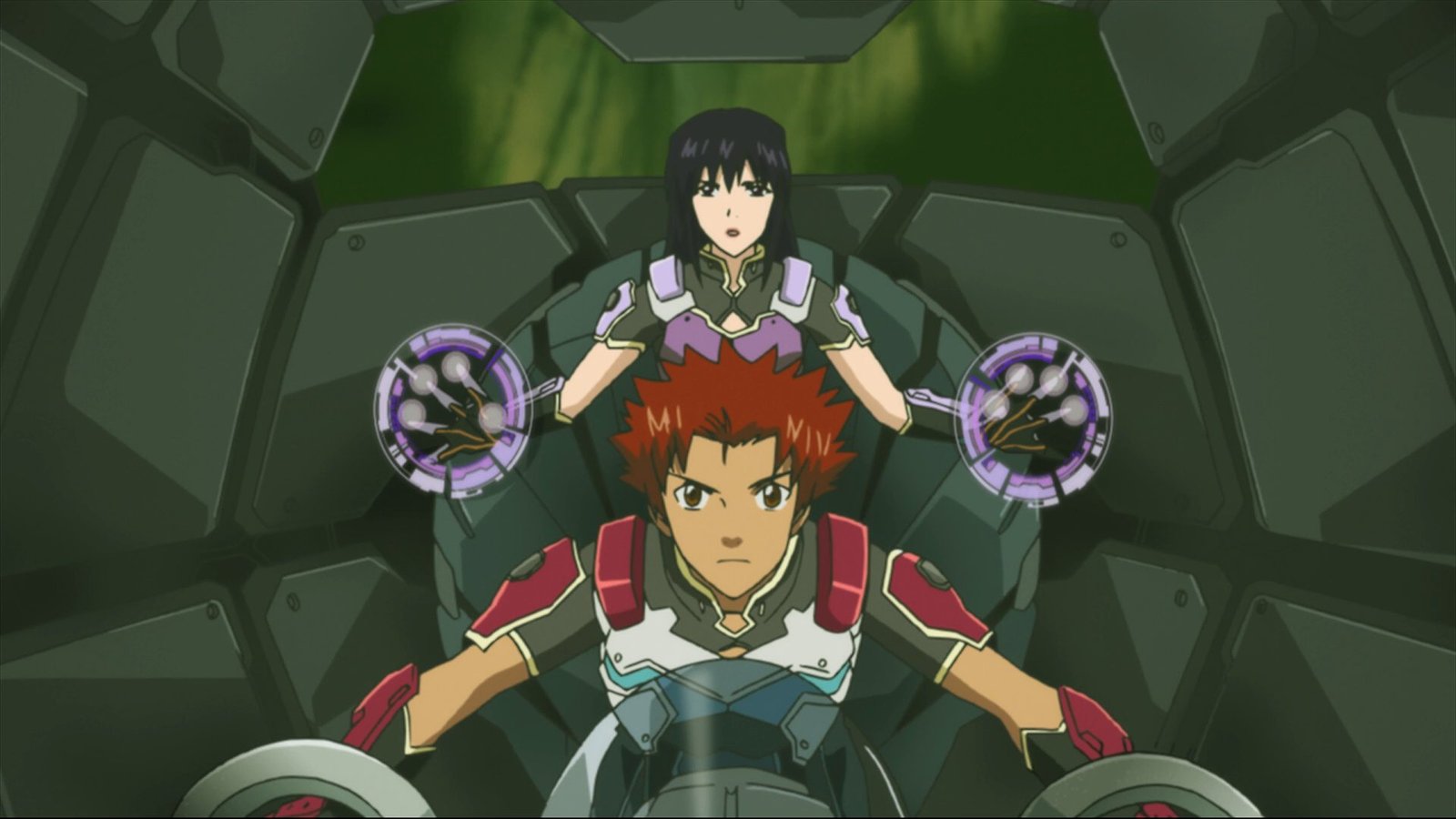From the New World, known as Shinsekai yori, follows Saki Watanabe and her childhood friends in a dystopian future where humans wield psychic powers called Cantus, living in an isolated society that suppresses dangerous instincts to maintain peace. The series delves into profound themes of human nature, the ethics of control, the fragility of empathy, and the blurred lines between humanity and monstrosity.
This curated collection of 25 quotes highlights pivotal moments of character growth, emotional depth, and thematic resonance across the story’s arcs, from innocent awakenings to harrowing rebellions.
The strong sometimes lack the will to do what must be done
Episode 1 (The Season of New Leaves)
Tomiko Asahina
Tomiko reflects on societal control during Saki’s cantus awakening, underscoring the theme of suppressed human brutality and foreshadowing her role in enforcing fragile harmony.
Nothing is more fragile than the human mind
Episode 2 (Lost Children)
Saki Watanabe
Saki grapples with the disappearance of friends Maria and Mamoru, revealing her budding empathy and the psychological toll of a world that discards the weak to preserve order.
We have to change our way of thinking, if we really want to change the future
Episode 25 (From the New World)
Saki Watanabe
In the finale, Saki vows reform after the queerat rebellion, marking her evolution from naive child to leader challenging systemic cruelty and echoing the series’ call for ethical evolution.
One by one, I’ve lost my loved ones. My sister. Shun. Maria and Mamoru. If I lose Satoru as well, I’ll be all alone
Episode 16 (Winter of Fever)
Saki Watanabe
Saki’s despair during Satoru’s peril highlights her isolation amid losses, connecting to themes of fragile bonds and the emotional cost of a society that isolates threats.
The future doesn’t belong to those who are afraid of change
Episode 14 (Tomiko Asahina)
Tomiko Asahina
Tomiko mentors Saki on leadership, emphasizing adaptability in a controlled utopia, which propels Saki’s growth and critiques rigid structures stifling progress.
Humans are just animals that learned how to control their powers
Episode 7 (The Green Goddess)
Satoru Asahina
During the false minoshiro encounter, Satoru questions human superiority, sparking his analytical development and tying into the theme of self-delusion about our primal origins.
To protect the town, you need someone who is not an obedient sheep
Episode 14 (Tomiko Asahina)
Tomiko Asahina
Tomiko explains the need for flawed leaders, inspiring Saki’s resolve and illuminating the moral grayness of power that defines the series’ ethical dilemmas.
All problems come from the human mind. In the mind, one’s consciousness is just the tip of the iceberg
Episode 19 (The Mirror of Euphoria)
Saki Watanabe
Saki confronts the psychobuster’s origins, revealing her deepened understanding of subconscious dangers and advancing the theme of hidden instincts threatening society.
If we cannot have our prosperity with pride, then we should reject such prosperity
Episode 11 (The Moon in the Tower)
Shun Aonuma
Shun’s reflective moment on ethics during their tower escape shows his introspective growth, linking to broader critiques of exploitative harmony built on subjugation.
Once we won, all the sacrifices would have been worth it
Episode 24 (The Summit of Winter)
Squealer (Yakomaru)
Squealer’s rebellion justification exposes queerat oppression, humanizing him and reinforcing themes of cyclical violence born from dehumanization.
I’m glad that you and I were friends
Episode 3 (From the New World)
Reiko Amano
Reiko’s farewell before her death from cantus overflow evokes profound loss, marking Saki’s early emotional hardening and the theme of inevitable sacrifices for stability.
There’s no future for people who worship the future, yet forget the past
Episode 5 (Lost Child)
Shun Aonuma
Shun warns against ignoring history during their forest adventure, fostering his bond with Saki and highlighting the dangers of selective memory in a censored world.
A chain is only as strong as its weakest link
Episode 8 (The Green Goddess)
Saki Watanabe
Saki assesses group dynamics post-minoshiro, showing her emerging leadership and tying to the theme of vulnerability in a society that eliminates perceived weaknesses.
We are humans!!
Episode 20 (The Moonless Age)
Kiroumaru
Kiroumaru’s defiant cry during alliance talks asserts queerat dignity, catalyzing Saki’s empathy growth and challenging the series’ human-centric morality.
I think if Maria had never been born into this world, then untold numbers could have been spared
Episode 18 (The Imperial Capital)
Saki Watanabe
Saki’s guilt over Maria’s fate reveals her internal conflict, connecting to themes of fate versus free will in a world that predestines lives for the greater good.
The real hell is inside the person
Episode 12 (History of Winter)
Mamoru Itou
Mamoru’s breakdown in the snowy wilds exposes mental fragility, underscoring his tragic arc and the psychological horrors suppressed by societal cantus control.
Even if I die, I will never let you go
Episode 9 (The Tower of Moon)
Shun Aonuma
Shun’s confession to Saki before his exile conveys desperate love, highlighting his sacrificial development and the emotional weight of forbidden connections.
When you hit the point of no return, that’s the moment it truly becomes a journey
Episode 6 (Return Home)
Saki Watanabe
Saki reflects on their perilous return, symbolizing her transition from childhood innocence to facing adult horrors and the irreversible path of discovery.
We’re all just walking each other home
Episode 22 (The Frozen Village)
Satoru Asahina
Satoru’s quiet assurance to Saki amid betrayal fears strengthens their partnership, echoing themes of mutual support in a world rife with isolation and deceit.
I could save the world, but lose you
Episode 15 (Spring of Youth)
Saki Watanabe
Saki’s plea during Shun’s fiend crisis reveals her romantic vulnerability, advancing her character arc and the tension between personal bonds and societal duty.
Humans decay. You have to remember that
Episode 10 (The Tower of Moon)
Tomiko Asahina
Tomiko imparts mortality’s reality to Saki, deepening her worldview and connecting to the theme of impermanence in a seemingly eternal psychic utopia.
It’s not about perfect. It’s about effort
Episode 13 (The Blue Bird Flies)
Satoru Asahina
Satoru’s encouragement to Saki during training shows his supportive evolution, tying to perseverance against the flaws inherent in human-controlled evolution.
The strongest people are those who endure, not because they have to, but because they choose to
Episode 21 (The Imperial Capital)
Squealer (Yakomaru)
Squealer’s philosophy on resilience inspires queerat resistance, humanizing the oppressed and critiquing enforced endurance in the series’ dystopian framework.
In the end, it’s not the years in your life that count. It’s the life in your years
Episode 23 (The Summit of Winter)
Saki Watanabe
Saki contemplates losses before the climax, marking her mature acceptance of fleeting humanity and reinforcing themes of meaningful existence amid control.
If I believe in one thing, just one thing… I believe in her
Episode 17 (Winter of Fever)
Satoru Asahina
Satoru’s faith in Saki during peril solidifies their enduring bond, illustrating character loyalty and the redemptive power of trust in a divided world.

